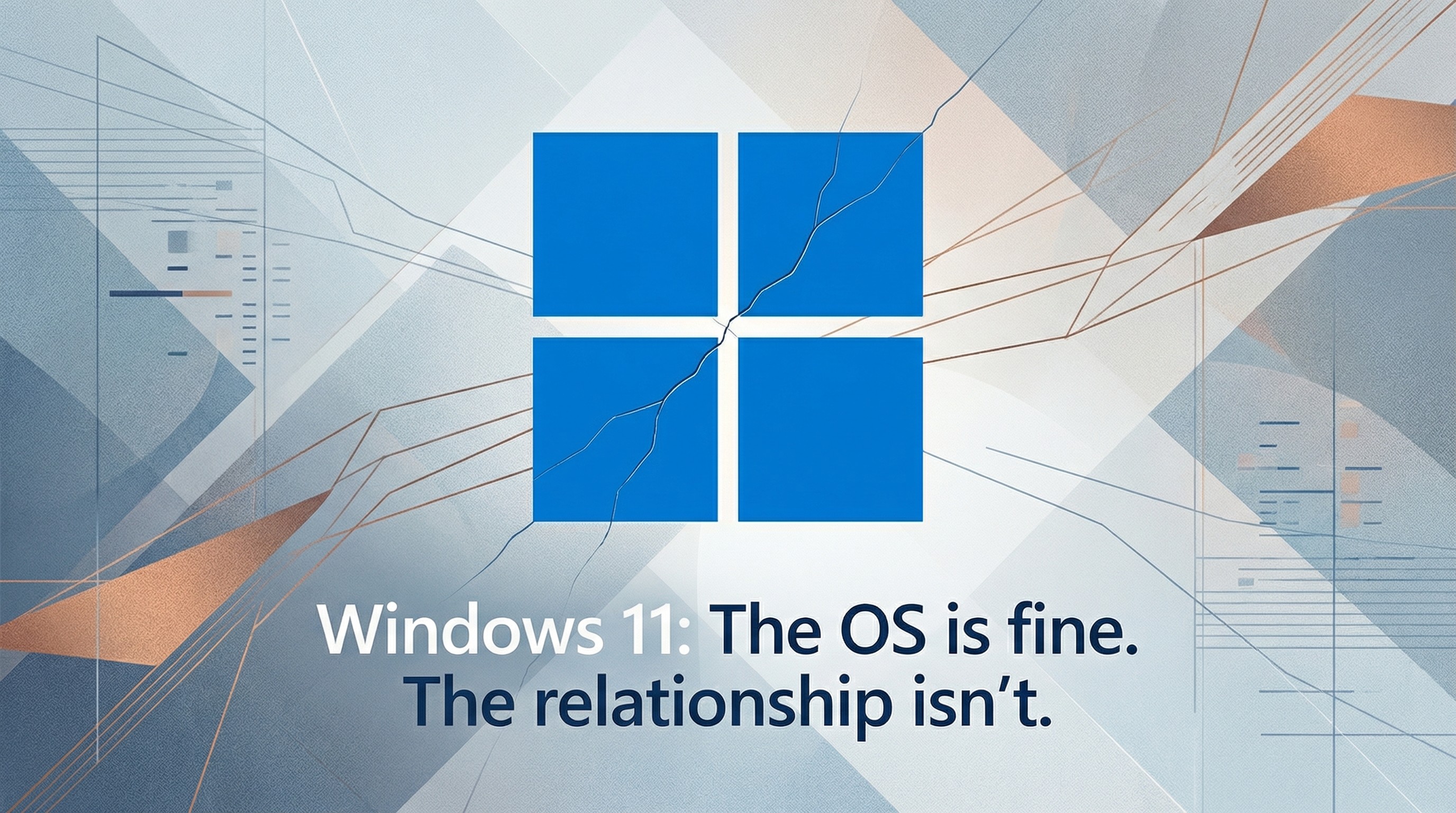Cyberpunk science fiction works well in video games, so I was excited to get my hands on State of Mind and its dystopian futuristic setting. Unfortunately, the game has problems with storytelling that cause it to fall short of other works in this genre. That said, many of the narrative ideas are great, and State of Mind is brought to life by its gorgeous presentation.
Too many eggs in one basket
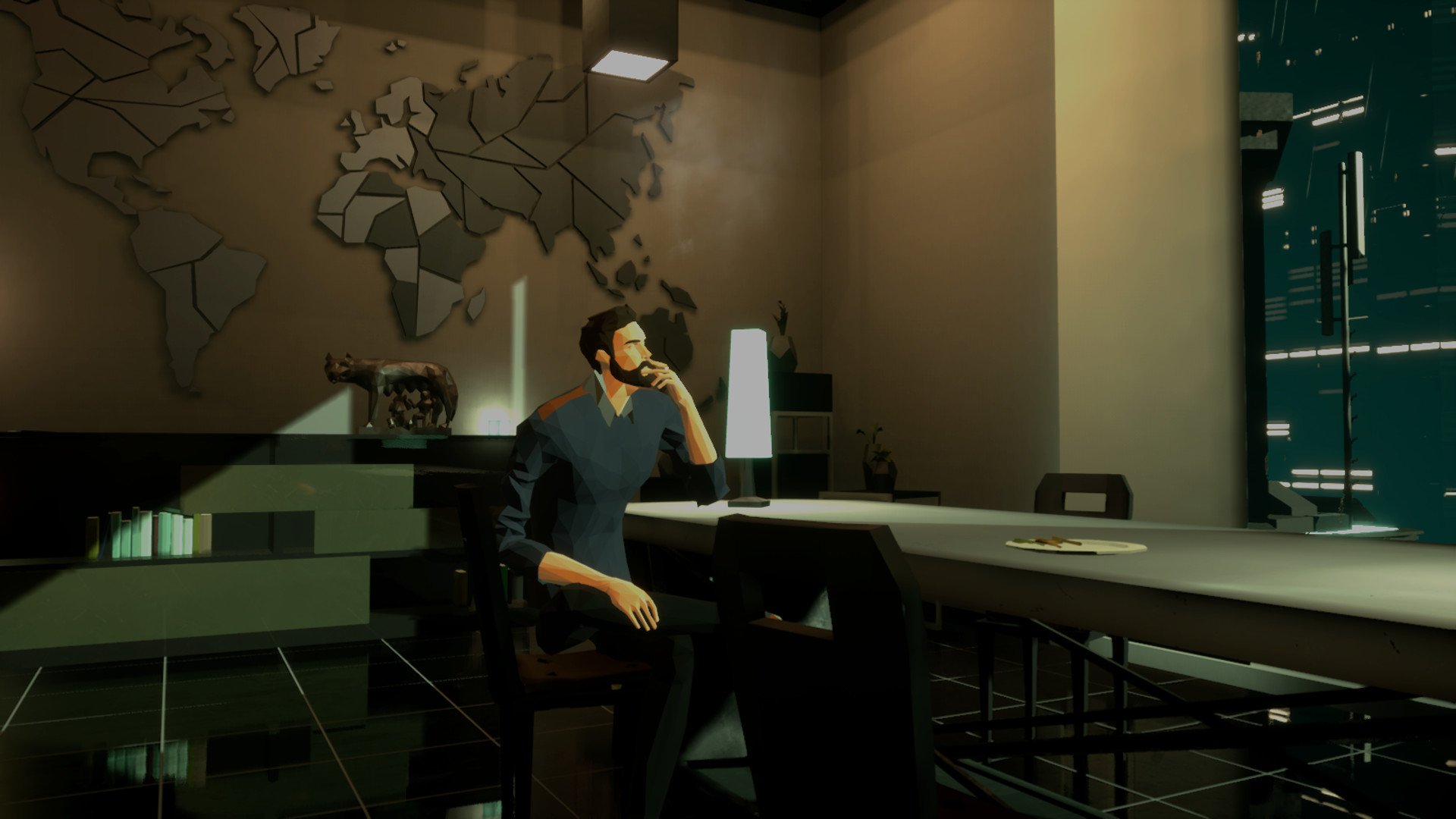
The primary character of State of Mind is Richard Nolan, a controversial journalist who has risen to popularity by trying to uncover secrets about the government. Sardonic, sarcastic, and an overall jerk, Richard is an interesting deviation from the status quo of lovable protagonists of many other games. State of Mind takes place mostly in Berlin in 2048, a time in which the world teeters on the brink due to destructive technological warfare.
Richard's personality and attitude have damaged his relationship with his family, and he fears that they've left him for good. As he investigates further, however, he realizes that what's actually going on is much darker than anything anyone could have imagined.
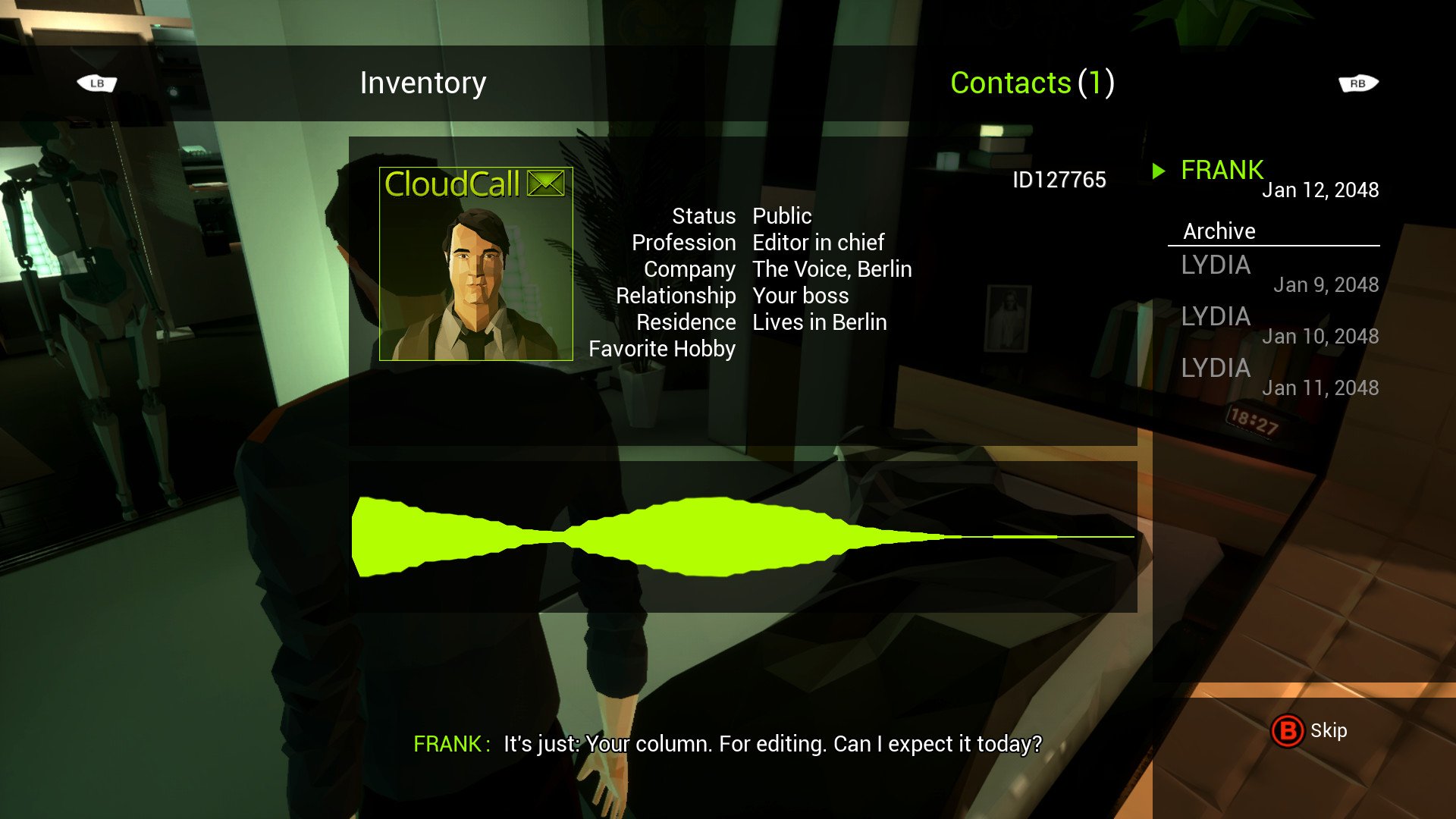
The plot sounds good, but State of Mind's artificial intelligence (AI) robots, armed conflicts over dwindling resources, invasive surveillance systems, and efforts to colonize Mars all make the writing feel confused. The themes of transhumanism, class conflict, and security versus privacy are great, but none of them can be fully explored when they're crammed together into a single experience.
When it comes to the gameplay mechanics, the majority of the title is a walking simulator where you interact with non-player characters (NPCs) and items to unravel the story. There are some fun minigames here and there, and these help to break up the monotony of constant dialogue so you won't get bored during long play sessions.
Low-poly beauty
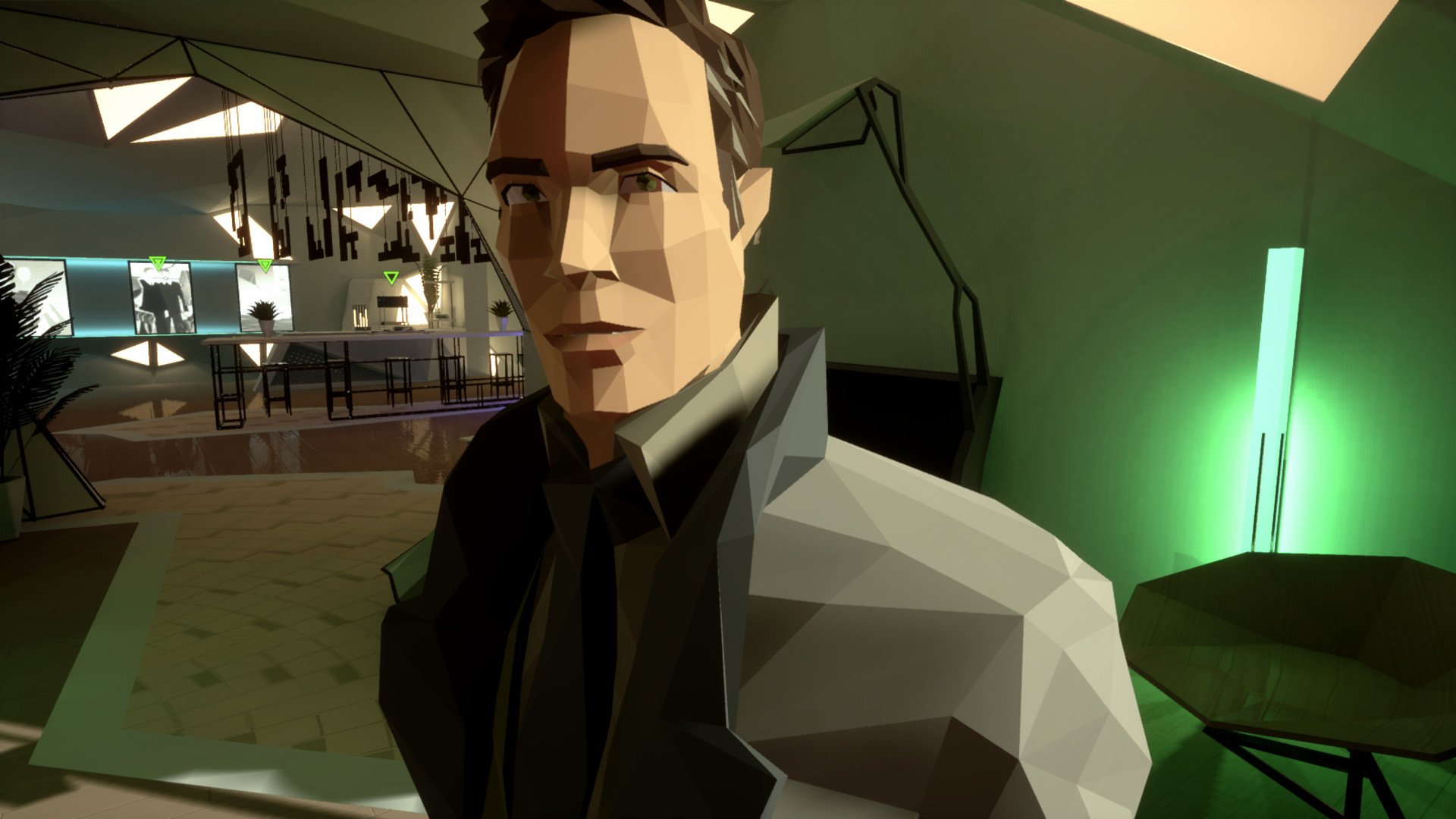
Visually, State of Mind is stunning, both in an artistic and thematic sense. Not only does the low-polygon art style look unique compared to everything else on the market, it also suits the game's themes. The angular appearance of the characters and world gives off a techno-futuristic vibe, which is perfect for State of Mind's tech-driven dystopian atmosphere.
All the latest news, reviews, and guides for Windows and Xbox diehards.
The score is brilliant, as well, blending piano and synthesizer together to build a soundtrack that embodies the idea of humanity going too far with their technological discoveries. Lastly, the game ran flawlessly on my Xbox One, with zero framerate drops or screen hitches.
Should you buy State of Mind?
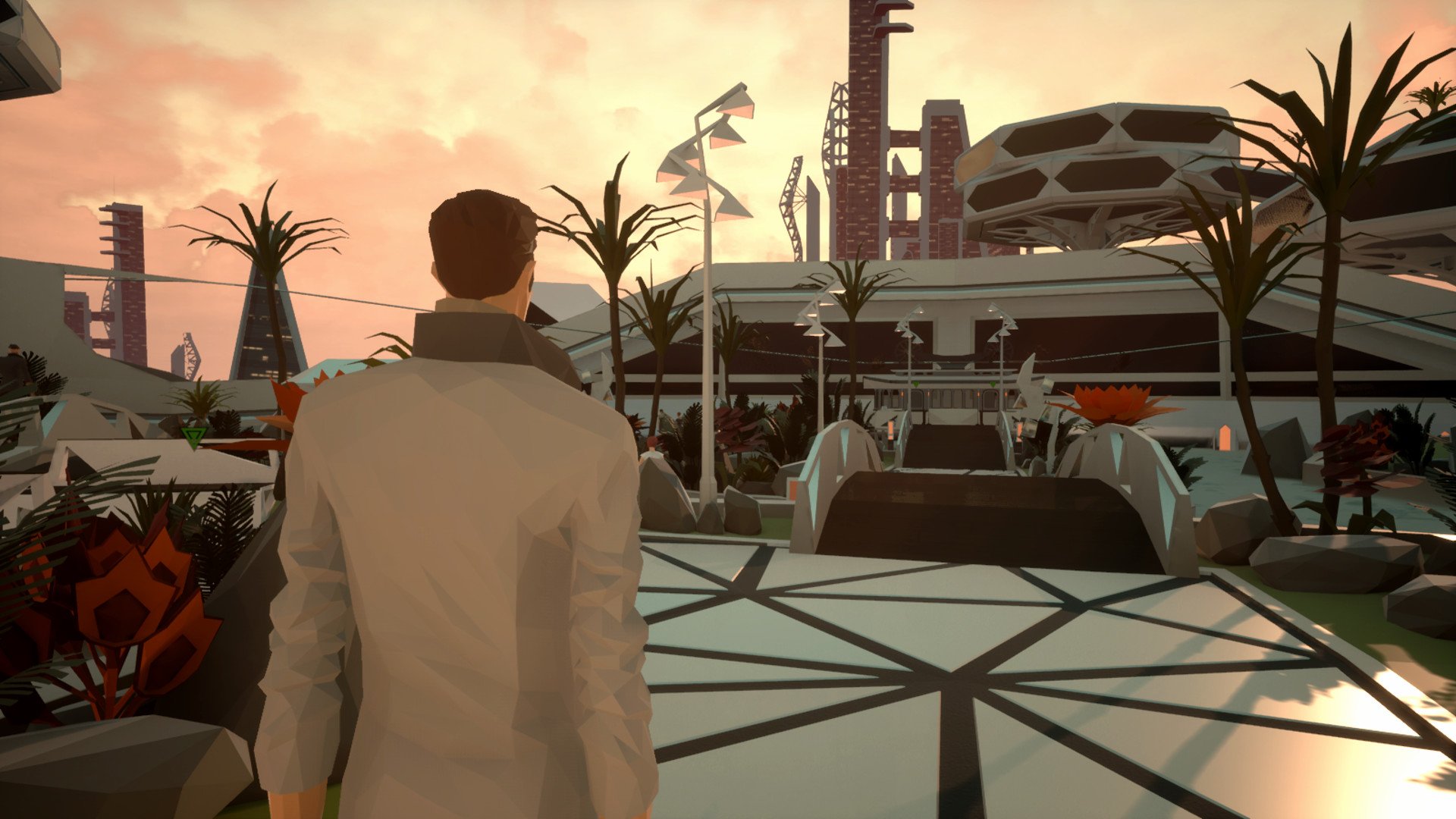
If you're looking for a top-notch cyberpunk story, you won't find it with State of Mind. It isn't bad, but it definitely isn't great, either. If that's a deal-beaker, pass on it or wait for a sale. If you're able to look past the lack of a strong central story, though, you'll be left with a gorgeous game built on some excellent (albeit underutilized) narrative foundations. If that sounds good to you, than you should buy State of Mind one hundred percent.
Pros:
- Amazing presentation and performance.
- Excellent narrative concepts.
Cons:
- Central story is unfocused and lacking.
State of Mind is available now on Xbox One for $39.99.

Brendan Lowry is a Windows Central writer and Oakland University graduate with a burning passion for video games, of which he's been an avid fan since childhood. He's been writing for Team WC since the summer of 2017, and you'll find him doing news, editorials, reviews, and general coverage on everything gaming, Xbox, and Windows PC. His favorite game of all time is probably NieR: Automata, though Elden Ring, Fallout: New Vegas, and Team Fortress 2 are in the running, too. When he's not writing or gaming, there's a good chance he's either watching an interesting new movie or TV show or actually going outside for once. Follow him on X (Twitter).

